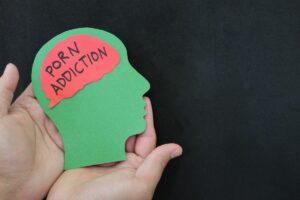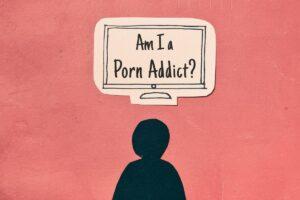Introduction
How to Recover from Being a Porn Addict In today’s digital age, pornography addiction has become a widespread issue, affecting individuals from all walks of life. It’s a problem that often remains hidden in the shadows, leading to feelings of shame, guilt, and isolation. However, the good news is that recovery is possible. In this article, we’ll explore the steps and strategies to help you overcome pornography addiction and regain control of your life.
Understanding Pornography Addiction
Before diving into recovery methods, it’s crucial to understand the nature of pornography addiction. This section will delve into the science and psychology behind this addiction, shedding light on why it can be so difficult to break free.
Recognizing the Signs
Identifying that you have a problem is the first step towards recovery. We’ll discuss common signs and symptoms of pornography addiction so that you can self-assess and determine whether you need help.
Seeking Professional Help
One of the most effective ways to overcome pornography addiction is by seeking professional assistance. We’ll explore the different types of therapists and support groups available, offering guidance on finding the right help for you.
Self-Help Strategies

While professional help is essential, there are also numerous self-help strategies that can aid in your recovery journey. This section will provide practical tips and techniques to reduce your dependence on pornography.
Setting Boundaries
Learn how to establish healthy boundaries to prevent relapses and regain control over your life.
Mindfulness and Meditation
Discover the power of mindfulness and meditation in breaking free from addiction and finding inner peace.
Building a Support System
Overcoming addiction is often easier when you have a strong support system in place. We’ll discuss the importance of confiding in friends and family and connecting with others who have faced similar challenges.
Coping with Triggers
Triggers can be powerful forces that lead to relapse. We’ll provide insights into identifying and managing triggers effectively.
Staying Committed
Maintaining your commitment to recovery can be challenging, but it’s essential. Learn strategies to stay motivated and focused on your path to healing.
Celebrating Milestones
Recognizing and celebrating your achievements along the way can boost your self-esteem and reinforce your determination to recover.
Relapse Prevention
Relapses are a part of the recovery journey for many individuals. This section will offer guidance on what to do if you experience a setback and how to prevent future relapses.
Conclusion
Recovering from pornography addiction is a challenging but entirely achievable goal. With the right knowledge, support, and strategies in place, you can break free from the grip of addiction and reclaim your life. Remember, seeking help is a sign of strength, and your journey to recovery is a testament to your resilience.

Frequently Asked Questions (FAQs)
- Is pornography addiction a common issue?
- Yes, pornography addiction affects millions of people worldwide, regardless of age or gender.
- Can I recover from pornography addiction on my own?
- While self-help strategies can be beneficial, seeking professional help is often essential for a successful recovery.
- How long does it take to overcome pornography addiction?
- The duration of recovery varies from person to person. It depends on various factors, including the severity of the addiction and the individual’s commitment to change.
- What are some common triggers for relapse?
- Triggers can include stress, loneliness, boredom, and exposure to explicit content. Learning to manage these triggers is crucial for recovery.
- Where can I find support groups for pornography addiction?
- Support groups can be found online, in local communities, or through therapy centers. It’s essential to choose a support group that aligns with your needs and goals.


